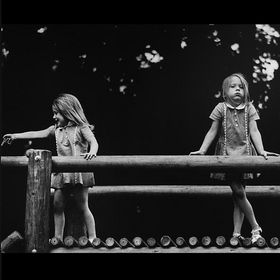|
My Taste in Music is Way Better Than Your Taste in Music ________ [Main] [Reviews] [Features] [Albums] [Wanted] [Top 50] [Guestbook] tommoatuccdotasndotau________ |

Ned Collette Future Suture Released in 2007 9.4/10 Styles Singer/Songwriter Folk Song Highlights Sell Your Life Show Your Hand Ned's Dream |
Ned Collette's debut Jokes and Trials was one of 2006's most pleasant surprises - the discovery of an immense new talent in the singer/songwriter field, with a perchant for poetic lyrical wordplay, passionate storytelling and accessible, exceptional songcraft. Just one year later, the followup Future Suture sees him expand on this blueprint by making use of crisper, cleaner recording techniques, full-band instrumentation (there are numerous touches of brass, strings, synths and woodwind) and significantly fuller, fleshed-out arrangements. With the album sporting a significantly lusher sound, I was initially concerned that this might be a case of one-step-forward for fullness of sound but two-steps-back for the loss of Jokes and Trials' wonderful sense of intimacy, however this most definitely wasn't the case. The additional instrumentation on Future Suture is perfectly implemented - it's unobtrusive, carefully chosen and very selectively utilised. Furthermore, all the individual parts of the album's sound are combined with noteworthy grace and precision, with the instruments rising and falling in and out of focus with a pleasing degree of subtlety, making for a very smooth, finely tuned whole. Examples of Collette's excellent command of arrangement, songcraft and composition are numerous throughout the album: its beginning track, "First Love" opens with a starkness of sound that rivals the minimal recording of Jokes and Trials, making it the perfect connection between the two albums; "Sell Your Life" features a mixture of percussion, synth, strings and layered guitar, augmented throught the use of selective stereo placement, resulting in a dense multi-dimensional sound; "The Country With a Smile" features the use of a whirling, multi-timbral synth organ called a farfisa, which sits unobtrusively behind the layers of guitar, creating a moody and vibrant feel; "Lost and Found" opens with an instrumental section dominated by wandering flute and closes with some very attention-grabbing backmasking; "Ned's Dream" is noteworthy for its alternatingly hushed and jarring acoustic guitar; and "Race" features the album's only serving of untamed, cathartic electric guitar. Perhaps the most striking example, though, can be heard on the album's centrepiece "Winter Holiday". The track's skittering percussion gives it a suitable feeling of restlessness, that juxtaposes perfectly against the subdued acoustic guitar and Collette's measured, uniformly mellow delivery. It's also closed out with one of the album's most overtly experimental turns - a 90 second stretch of ambient synth, random guitar plucks and distant background noise which actually work far better than I would've expected, as it serves to create a tense, moody atmosphere that bridges perfectly into the pensive and melancholy opening of "Ned's Dream". After such an impressive showing on Jokes and Trials, Collette's grasp on vocal phrasing gets even more impressive on Future Suture, as he reels out line after line of beautifully timed sentiments, draped in vivid imagery, tinged by his Slim-Dusty-meets-Leonard-Cohen accent and coloured by his use of distinctly Australian colloquialisms. The lyrics of most of Collette's songs are either tied together by a distinct theme or story, or are detatched, ambiguous musings open to varied interpretation - either way, they're the sort of thing that's far better heard in context than read apart from it, so I'll not reproduce them here. On Jokes and Trials, I found Collette's guitar-work in particular to be quite a wonder to behold. Having seen him perform live during that album's launch tour, I was lucky enough to witness an incredible display of skill and finesse. Those who've only heard his albums may be unaware, but for his live performances, Collette actually uses equipment which allows him to record his guitar output on the fly, such that he can play it back as a loop and subsequently add further layers of guitar over the top, making for a sound that managed to be both full-bodied and extremely personal. This style of live-play is indicative of the complex-yet-accessible musicianship Collette displayed on his debut, and his aptitude in this area is displayed to just as impressive an extent - if not moreso - on Future Suture. Every one of the album's songs features beatifully strummed, evocative chord progressions, intricate finger picking, complex, multi-layered arrangements, varied play-styles and an overall level of creativity that's impossibly catchy at first listen yet reveals a degree of highly impressive craftsmanship upon further analysis. It should also be noted that Future Suture is a very consistent affair, as well as being particularly tight and measured within its 9-track, 50-minute structure. There's certainly nothing that could even come close to being described as filler, and the the fact that the album's high points merely act as subtle lifts rather than sharp peaks is testament to the uniformly high quality of the content. Even the sequencing is spot-on, as the album retains a feeling of strong momentum, while still displaying plenty of variance in style and tone, throughout its duration. It's entirely possible that Future Suture is an even better album than Jokes and Trials. I still cling to that first release, though, with the sentimentality you feel at discovering such a hidden gem of a musician and the awe of hearing them for the first time. In time, however, it wouldn't surprise me in the least if Future Suture were to surpass it - this album is just that good. |